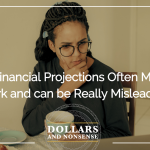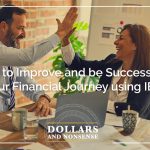In this episode, we discuss what Ron Paul calls, “The biggest financial bubble in the history of mankind,” and how you can survive the next financial disaster.
This bubble is built on the fact that the U.S. debt to spending ratio is completely out of balance. Basically, we’re not doing anything to reduce our debt, but we also just keep spending, and spending, and spending.
The U.S. debt to spending ratio is more than merely bad budgeting, though. It also impacts the stock market. Most of us would probably agree that the market is overpriced right now. It’s inflated, it’s a bubble as they would say. Even though most of us have this feeling that, “Okay, it’s true that markets go up, they go down. Ride them out and up, then it crashes, then you ride it back up.” But this isn’t necessarily the safest strategy.
We are aware that it’s been 10 years since the last major crash. That’s a long time in the world of stock markets continue without a major correction. Unprecedented pressure may be building.
The question most of us are wondering is why did the market recover and reach all these new time highs, and how are we able to sustain all this debt? Then the bigger question, “What can we do to insulate and protect ourselves?”
Find out in this episode.
Resources:
- Interview with Ron Paul
- Infinite Banking and Priviate Family Financing explained
- Get your free copy of The Tree of Wealth here now
Podcast transcript for episode 49: Financial Bubble About to Burst
Nate: In this episode we will discuss what Ron Paul calls, “The biggest bubble in the history of mankind,” and how you can survive the next financial disaster. She’s Holly, and she helps people find financial freedom.
Holly: He’s Nate, he makes sense out of money. This is Dollars and Nonsense: If You Follow the Herd, You Will Be Slaughtered.
Nate: We both were very disturbed, I guess you can say, about an article, Ron Paul talking about the “bubble” that’s been building in the markets that’s just waiting to burst. You and I have been saying that we think it’s going to happen, we’ve been saying it long before Ron Paul just said it. He said it before, what is this bubble built on? What are we even talking about when we say we’re in a bubble?
Holly: This bubble is built on the fact that we have way too much debt in the U.S., and I’ll let you address that, and that we have too much spending. Basically we’re not doing anything to reduce our debt, but we also just keep spending, and spending, and spending. And if you really look at the U.S. economy and when was the last time any president ever reduced our debt and the government spending, I don’t believe it’s ever really happened to the point where we should actually be living within our means. If our government’s not living within it’s means, then how does the American people live within their means, and is it possible to actually reduce your taxes when we have so much spending and do much debt?
Nate: I mean, I’ve asked many people, and if you’re listening to this you may have been one of those that got asked by me and my others, but most of us would probably agree that we’d feel that the market right now is overpriced. It’s inflated, it’s a bubble as they would say. Even though most of us have this feeling that, “Okay, it’s true that markets go up, they go down. Ride them out and up, then it crashes, then you ride it back up.” Most of us are aware that it’s been 10 years since the last major crash, the last major correction. That’s a long time in the world of stock markets to not have a major correction.
The question most of us are wondering is why did the market recover and reach all these new time highs? You start wondering, is it the Federal Reserve printing money with quantitative using, and as Ron Paul would talk about, they’ve really just been trying to prop up the market, the stock market, to avoid a panic because the government wants us to spend money. It’s when we start saving that they fear that the GDP’s going to down and taxes are going to go down. They have all these things that they’re trying to encourage us to spend, and it’s creating this bubble that we’re afraid is going to burst from mainly, as would always be the case, government intervention.
We can’t fully know what’s going to happen, or when it’s going to happen, but it seems logical to me that when you print money to prop up the economy, how is there no reckoning for that? Or my thoughts have always been, “If it’s okay to print money to prop up the economy, why not just continue to print money? Why would we ever stop?” If it’s good for the economy for us to print money to get ourselves out of something, why would we ever stop if it just makes sense to have more and more money?
Obviously that can’t work. So why do we just print 4.5 trillion dollars over the last six, seven years?
Holly: And where is that 4.5 trillion dollars other than maybe just sitting on it, waiting for something to happen due to … You haven’t seen that much inflation, but what we have seen in 2018 is the Dow has come back positive, we’ve seen NASDAQ rise to fresh starts and you’ve seen the S&P 500 increase. All of which indicates basically we haven’t cut our spending and we haven’t cut our debt, so why is the stock rising and why should we be wary of that? Because Ron Paul kind warns, and I would kind of agree with him, he believes that when the bubble bursts it could cut the stock market in half, and I would agree that that is probably a … Some people might say worst case scenario, what if that’s a conservative scenario and that’s not the worst case scenario? You really got to start asking, “Why is the stock increasing and the market doing so well when in reality the things that support that actually haven’t been reduced, such as our government spending and our debt.”
So if we haven’t reduced that and we printed all this paper money, why is the stock market really actually rising, and what’s going to happen if it does crash? To you, or your loved ones, or how reliable are you, and how comfortable do you feel knowing you have a majority of your stock portfolio in stocks, and most of your retirement in stocks? Does it mean somebody has nothing to live on and are they going to have to file Chapter 11 bankruptcy or something like that due to having absolutely no retirement left?
Nate: You can kind of tie into this conversation as well the fact that the congressional budget office estimates federal deficits will average 1.2 trillion dollars a year for the nest 10 years. That’s the deficit. We’re already at 20 trillion dollars owed in debt as a country, and then to add 1.2 trillion each and every year for the next 10 years. I mean, that’s a huge number. You start wondering, are taxes really going to ever go down or are they just going to up? You start wondering these things, a lot of people have money in retirement programs where we’re going to have 35 trillion dollars of debt in 10 years and they’re going to want to get some money to pay that. At some point it’s going to be Reckoning Day and if we have post [inaudible 00:05:54] paying taxes and we’re now stuck on these government sponsored programs, who knows if we end up being like the next Venezuela or something like that that just creates a single payer system, everyone plug in social security, and compensate the retirement program.
I’m not saying that’s going to happen, but why even leave yourself vulnerable to something like that happening 20 years down the road, which it very well could. What are some things that we can do to try to protect ourselves as best we can from what is very possibly the next big disaster? I hope it never happens, I really do, but the writing is on the wall.
Holly: It’s not the first time … 10 years ago, yes we had a stock market crash. We’ve had more than one stock market crash, so if history repeats itself, I think number one, you have to be prepared or realistic to the fact that this could happen. And where is most of your retirement or your investment lying? If it’s in the stock market, do you want to safeguard that first, and how do you safeguard it?
Nate: I mean, that’s the first question, if you do feel that there’s going to be a correction, do you just want to take the hit or do you want to try to figure something else out. Of course one of those things that we teach all the time is no correlation with the stock market, of course, is the infinite banking concept. My thought is always, “Why throw good money after bad money?” For the people who already have money stuck in the retirement programs, maybe they can’t even get it out, so it’s just going to be hit.
Maybe if you’re in the position and you really are concerned by it you can keep it inside of a program and you can liquidate it to cash inside the program so it’s not in the market at least, maybe go out and out it into a money market or CD or something like that house there. Earn some interest but protect it from the downside. It’s kind of a drastic source, but what I’m trying to say is a lot of people think, know that there’s going to be a crash and yet they are still putting money into these overinflated stocks that are paying way more, or at least they’re valued higher than they should be.
So that’s the first option to me that comes to mind. Of course because that’s what we do is to start moving money into things that are not correlated to the stock market, things that don’t require the economy to be doing well to function. One of those has been through the Depression, the recession, all the ups and downs and has paid dividends through it all, and that would be participating whole life insurance, which is of course the tool used to do infinite banking. So that’s one of the first things you could start looking into to avoid, at least with some of your money, to stop throwing good money after bad money. I would say stop buying stocks as they’re overpriced, put money in and then maybe pull money out of the policies through a loan to buy stock, if that’s what you’re into, after the crash and you can get them really cheap.
But to have a strong feeling that it’s going to happen and to continue to put money into it doesn’t seem like a good idea to me.
Holly: Well and I think too Nate, you have to look at the risk that you’re taking by doing that. Are you okay if you lose half the retirement? Are you okay with what you’ve invested if you get zero rate of return and you take a big loss? Have you invested so much into the stock market that if there’s a loss you can’t maintain you’re current lifestyle? I think you shouldn’t ask the question of if you believe it’s going to happen, I think it should be when it’s going to happen, because I think there will be a crash. I don’t think anybody can predict when it will happen, but I think it’s going to be sooner rather than later, and I think you have to look and see at where the economy’s headed and even the U.S. and what we’re doing in order to determine that.
And like Nate said, you want to put it in something that’s not based on what I call “funny money,” money that isn’t necessarily there. Yes, we might have printed 4.5 trillion dollars in the Federal Reserve, but basically if we keep printing more money it doesn’t save anybody. So you want to do it in that mutual life insurance company, because it’s Austrian economics, it’s a dollar for dollar and it’s not invested in the stock market. I think the very first thing you should ask yourself is, “What have you invested in the stock market, but as well as your retirement programs, where are they invested?”
Announcer: Are you tired of being stressed about money? The Dollars and Nonsense podcast is sponsored by Living Wealth. Visit livingwealth.com/freedom to get your free smart money e-book and sign up for our personal wealth presentation today. Living Wealth is a family owned and operated business, which works with individuals, families, and even businesses to slay the money stress dragon. Our clients receive individual coaching regarding wealth creation, and how to create a retirement income. You’ll be enabled to have cash today, and in the future. Since 1972, Living Wealth has been committed to educating smart people on basic money principles, to assist them in becoming debt free, and finally find financial freedom. Let us help set you free. Remember to visit livingwealth.com/freedom to receive your free e-book and even sign up for an individual wealth presentation today.
Nate: The easiest option for us is to stay with our bread and butter, which is whole life insurance, but other things can be helpful too that are less correlated. Rental real estate properties are less correlated than the stock market that there’s always going to need to be someone who needs a place to live. We did see a housing market crash, but if you’ve got rentals, you know what you’re doing, that can be helpful. Knowing business, getting good at something is always been something huge I’ve thought of. Maybe buying some gold if you like. I mean, I don’t know if I’m huge on that for a couple reasons, but it’s true that it might hold a place somewhere. Other non correlated things like loans and lending, to individuals and other things. Now that Crowdsourcing is a thing and like Lending Club that open up opportunities. People enjoy life settlements at times, it’s just completely non-correlated to anything, except for the people who are actuarily going to pass away at some point.
So there’s certainly options out there. I would just say our motto here is, “If you follow the herd you will get slaughtered.” I think there is going to be a slaughter, I think people are going to get slaughtered if you stick with herd mentality and just keep doing what you’re always doing, I think it will causes, as Ron Paul says, a Libertarian mindset, as am I, “The biggest bubble in the history of mankind.” It’s going to hurt when it pops. I don’t know the ramifications of it. I’m concerned for everyone, I’m concerned for the United States when it happens. But doesn’t mean you should be wise with what you have and make some corrections if you’re way too sensitive to a crash, because that’s where to majority of your wealth is held.
Holly: I think too what Nate said is, is your money overexposed? Is it really invested in something that there really is no security behind it, and if you’re not real secure … It’s kind of like what my dad said right before the last big crash, “You can look at the stock market, 5, 6, 7 8, 10, 15, 20 times a day and check your stocks, and it doesn’t matter how many times you look at it, it’s not necessarily going to change what’s happening.” You actually have to take action, and decide, and make a decision, and create change for yourself and your family. If you think there’s not a lot of older people who are out there working, then stop and go to a fast food restaurant, Walmart, a grocery store and you’ll see a lot more older people are going back to work because even the retirement they thought they had wasn’t enough, or it was involved in the crash and they ended up having to go back to work.
So the reality is that we’ve got to start being proactive instead of reactive. When you’re following the herd you’re reactive, you’re not proactive to what’s going on or seeing what’s around you. Start asking those important questions.
Nate: I mean, the real estate crash and the stock market crash caused everyone to lose a lot money. I should say everyone, it caused a lot of people to lose a lot of money, but it made a whole bunch of other people millionaires because they saw it coming, they reserved some of their money outside, and then they bought the practically free properties that were coming up everywhere and the really cheap stocks. Now they’re multi-millionaires because they foresaw it and they didn’t want to be a part of it. That’s what we want for your guys is not necessarily just build a bunker, and put some food in it, and hope for the best, you know? You could do that if you want, but what we’re trying to say is there are ways to get wealthy in the crash if you have resources available to take advantage of the opportunities that obviously comes when there’s panic.
As Warren Buffet talks about, when everyone else is panicking, that’s probably a good time to start buying stuff. When everyone else is buying, and everyone else is feeling good about it, that might be a good time to sell out because there’s highs and lows and you want to be right at the beginning of each one. You’re going to buy in at the very bottom and be the first to sell at the high.
It’s hard to do, so I don’t want you to be always timing things, but just be aware that man, we’ve been rolling pretty well on the markets for … It doesn’t seem to be built on earnings, which is what it should be. These corporate earnings should be the real driver in the price. But they’re way out of whack right now, probably means some Federal Reserve money’s been pumping up the prices and it’s going to explode, I hope you don’t get hurt when it does.
Holly: Yeah. And really look at what’s going on. Is our deficit decreasing, is it increasing? You can see every day how much it’s increasing by. Even people estimating what’s going to happen for 2018, they’ve changed even since 2017, and the reality is is that we really honestly don’t know what’s going to happen in the future, we can’t predict it. But what we can do is prepare for it, and to be aware of what’s going on around us. Sometimes for me, like right now, with everything positive with the stock market, in my back of mind I say it’s almost too good to be true. And if it’s too good to be true, I feel like something’s going to happen. And so if it’s going to happen I’d rather be ahead of it than behind it. Really find out for yourself what you want to do and really believe in the ability to make some change. Just because nobody else is doing it doesn’t mean it’s the wrong change.
Nate: And I tell people this all the time, don’t violate your conscience. In other words, no one can tell the future, so you have to go with what history, and logic, and reason says, but also with what your own conscience says. You know, there’s some people saying, “I don’t want to miss out,” but they really feel like it’s a bad investment. But their buddies are doing it, everyone else is doing it, they say, “Okay, I’m going to go ahead and do it.” Whether that’s the stock market, the 401K, or anything else, and then they end up losing money. But deep down they felt that, “No, this doesn’t fit me,” then they should have put money into it.
That’s why I tell people right now, I can’t tell you if the stock market’s ever going to crash again. I think history, logic, reason kind of shows that it will at some point, I can’t tell you when, I can’t guarantee anything. But, for me the reason I am not putting my own money into it is because I’m concerned personally. You could be an optimistic, don’t just blindly follow me, but you have to come up to your own judgment. That way you can live with a clean conscience. If the market does fail and you said, “No Nate, I think you’re wrong, I think it’s going to keep going.” At least you did what you felt was the right thing to do.
Don’t just follow blindly my voice or anyone else’s voice hoping to make a quick buck or something like that. Come to a conclusion with what you feel is going to happen, based on some voices, based on logic, and then move forward with the best plan that you can come up with, or ask our help if you need some help with a plan and run with that. But don’t let yourself be torn up and guilty inside because you didn’t follow what you felt was right and it cost you big time potentially.
Holly: Really find out what is going on for yourself, not just what Ron Paul’s saying, or Nate or I, or somebody else is saying. There is plenty of information out there if you do the research, just say, “You know what? This doesn’t sit well with me.” I say follow your gut, because my gut is more that feeling of, “This is logical.” Do your own research, don’t listen to what somebody else is telling you, and make a decision based on what you believe is the best information you can get, and gather, versus just blindly following what somebody else is telling you to do or what somebody says is going to happen.
Nate: Yeah. There’s no way to guarantee that your choice is going to make you successful, but at least it was your choice. It was up to you and you weren’t deceived by someone or led astray, it was up to you. Take ownership of it, as we talk about all the time, taking ownership of your own finances and running with it. But with that we’re probably out of time.
This has been Dollars and Nonsense: If You Follow the Herd, You Will Get Slaughtered.
Holly: For free transcripts and resources please visit livingwealth.com/e49.









